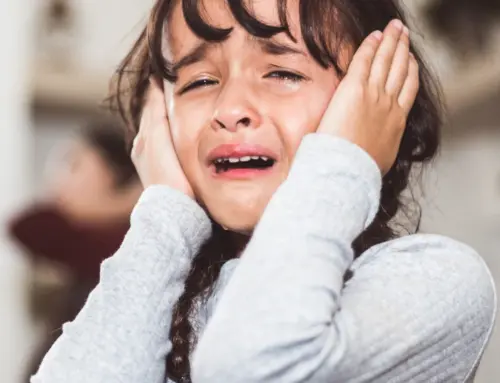Benzodiazepines and depression can hold a powerful grip on the brain and human body. These two issues are deeply connected, yet often misunderstood. While benzodiazepines are designed to calm the mind and body, they can sometimes do the opposite over time: worsen mood, flatten emotions, or even trigger depressive episodes.
People who rely on benzodiazepines to cope with anxiety, insomnia, or trauma often find themselves trapped in a cycle of temporary relief followed by emotional shutdown. Even worse, untreated depression can drive individuals to misuse benzos in search of numbness. It’s a complex, two-way street that deserves serious attention.
Struggling with this in Texas? The Springboard Center is a hospital-grade, nonprofit addiction treatment facility that specializes in helping people safely recover from benzodiazepine dependence and co-occurring depression. If you or a loved one are facing these challenges, we’re here to help. Contact us today to start the path towards full recovery.
What Are Benzodiazepines and Why Are They Prescribed?
Benzodiazepines and depression often meet in the same clinical setting—but the benzos usually come first. These sedatives are most commonly prescribed for anxiety disorders, panic attacks, seizures, muscle spasms, and short-term insomnia. Some doctors even prescribe them during alcohol detox to manage withdrawal symptoms safely.
Benzodiazepines work by enhancing the neurotransmitter GABA, which slows brain activity and calms the nervous system. When taken as prescribed and for short durations, they can be helpful. But prolonged use often leads to serious complications.
Common Conditions Treated With Benzodiazepines
Doctors often prescribe benzos to people suffering from anxiety, PTSD, sleep disorders, or acute stress. In many cases, these conditions also overlap with depressive symptoms—blurring the lines between treatment and risk.
How Benzodiazepines Work on the Brain
Benzodiazepines target GABA-A receptors, which regulate sedation and anxiety. While boosting GABA can calm the system, over time it desensitizes the brain to natural relaxation. This is where long-term risk creeps in.
Risks of Tolerance, Dependence, and Misuse
It doesn’t take long for the body to build a tolerance to benzos. As dosage increases, the risk of physical dependence rises sharply. Many people who start with a legitimate prescription find themselves unable to stop—leading to dependency, accidental misuse, and in some cases, addiction.
To learn more, read: Effects Of Benzodiazepine Addiction On The Brain And Body
Benzodiazepines and Depression: How They’re Connected

The connection between benzodiazepines and depression is often underestimated. While benzos can provide short-term symptom relief, long-term use has been shown to increase depressive symptoms, dull emotional responses, and create a dependency that worsens mental health over time.
Short-Term Relief vs Long-Term Mental Health Risks
In the short run, benzos can feel like a miracle—silencing panic, slowing racing thoughts, and inducing sleep. But these benefits are often temporary. Over time, emotional numbing, fatigue, and mood instability become more common.
Can Benzos Worsen Depression Over Time?
Yes. Research shows that long-term effects of benzodiazepines on brain chemistry can dull dopamine and serotonin pathways—both essential for mood regulation. This leads to emotional flatness and even major depressive episodes, especially during or after withdrawal.
The Role of Co-Occurring Anxiety and Mood Disorders
Anxiety and depression frequently coexist. This makes benzos particularly risky, as they may treat anxiety while worsening depressive symptoms. A person might feel calmer but also more disengaged, apathetic, or emotionally blunted.
The Long-Term Effects of Benzodiazepines on Brain Chemistry
Chronic benzodiazepine use changes the way your brain responds to stress, sleep, and emotion. Over time, the body becomes less able to self-regulate without the drug’s influence.
Emotional Regulation
Continuous benzo exposure can downregulate when your brain stops producing the calming effect naturally, leading to increased anxiety, tension, and depressive symptoms when the drug is absent.
Cognitive Impairment and Blunted Mood Response
Prolonged use is associated with slower mental processing, poor memory, and decreased motivation. Many individuals report feeling emotionally detached—unable to enjoy life or respond with normal affect.
Compared to older sedatives like barbiturates, the safety profile of benzos is higher—but the debate of barbiturates vs benzodiazepines continues in clinical settings, especially regarding dependence and mood impact.
Rebound Depression After Withdrawal
During withdrawal, the brain’s overstimulated state can lead to rebound depression. Mood crashes are common as the body struggles to restore natural neurotransmitter balance. This is why medically supervised detox is crucial.
Benzodiazepines Anxiety and Depression Link in Clinical Research

Chronic use of benzodiazepines may actually make depression worse over time. Many individuals report increased depressive symptoms and reduced day-to-day functioning with prolonged use.
Findings From Recent Meta-Analyses and Longitudinal Studies
Studies show that extended benzo use is linked to increased suicidal ideation, emotional withdrawal, and poor antidepressant response. Many of these effects reverse after cessation—but only with a carefully structured recovery process.
Impact on SSRI and Antidepressant Treatment Outcomes
When SSRIs are combined with long-term benzodiazepines, the results are mixed. Some patients experience delayed improvement, reduced antidepressant efficacy, and persistent low mood—especially when tapering is abrupt or unsupported.
Benzodiazepine Withdrawal and Depression: What to Expect

Withdrawal from benzodiazepines can be severe—both physically and psychologically. It often includes symptoms that closely mimic clinical depression: hopelessness, mood swings, irritability, and fatigue.
Common Withdrawal Symptoms That Mimic Depression
Loss of interest, sleep disruption, crying spells, and feelings of emptiness are all common during withdrawal. It’s important to differentiate between benzo withdrawal depression and primary mood disorders when planning treatment.
Can Withdrawal From Benzodiazepines Kill You?
Yes. In rare cases, abrupt withdrawal from high-dose or long-term benzo use can cause seizures or cardiac complications. Can withdrawal from benzodiazepines kill you? It’s unlikely, but not impossible—which is why medical oversight is non-negotiable.
Importance of Medically Supervised Tapering
Tapering slowly under clinical supervision is the safest path forward, especially for those who have used high doses or the strongest benzodiazepines over long periods. The Springboard Center provides care with physician-monitored protocols to ease the transition and minimize emotional distress.
Benzodiazepines and Alcohol: A Dangerous Combination
Combining benzodiazepines and alcohol is one of the most dangerous—and unfortunately common—forms of polysubstance use. Both substances suppress the central nervous system. Together, they can cause respiratory failure, unconsciousness, or death.
Risk of CNS Depression and Respiratory Failure
Even at moderate doses, this combination can slow breathing, heart rate, and brain activity to fatal levels. The effects are unpredictable and magnified by stress, illness, or other substances.
Overdose Potential in Polysubstance Use
According to the CDC, benzos are present in nearly 14% of all opioid-related overdoses. Alcohol is frequently a compounding factor. Treatment must address both substances to be effective.
Warning Signs of Co-Use in Loved Ones
Slurred speech, confusion, irritability, or blackouts may indicate dual use. If a loved one shows these signs, contact a recovery center like Springboard for immediate intervention.
How The Springboard Center Helps Clients With Benzodiazepine-Related Depression
Dual diagnosis treatment is our specialty. The Springboard Center blends medical detox, psychiatric stabilization, and long-term recovery support for clients struggling with both benzos and depression.
Dual-Diagnosis Treatment for Mood and Substance Disorders
We don’t treat symptoms in isolation. Depression, anxiety, trauma, and addiction all interact. Our program integrates therapy, group work, and psychiatric care to treat the root causes—not just the symptoms.
Hospital-Grade Detox and Safe Medication Tapering
Clients detox in a licensed, medically supervised environment with 24/7 clinical monitoring. Our protocols are tailored to each person’s dosage, duration, and mental health history.
Take the First Steps Towards Healing With The Springboard Center
You don’t have to navigate benzodiazepines and depression alone. The Springboard Center offers personalized, ethical care to help you or your loved one stabilize and heal. Reach out to our team today and let us support your next step forward.




